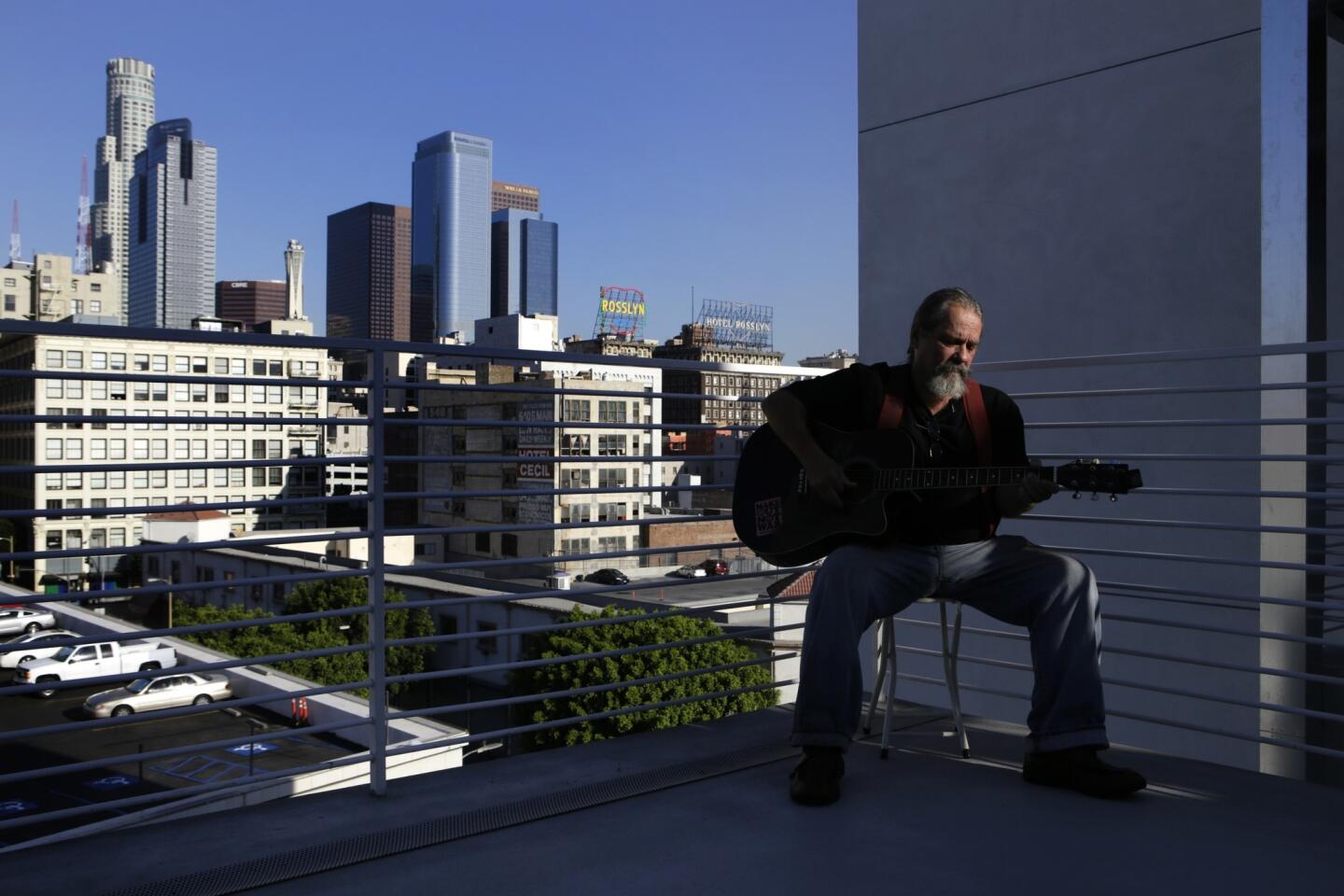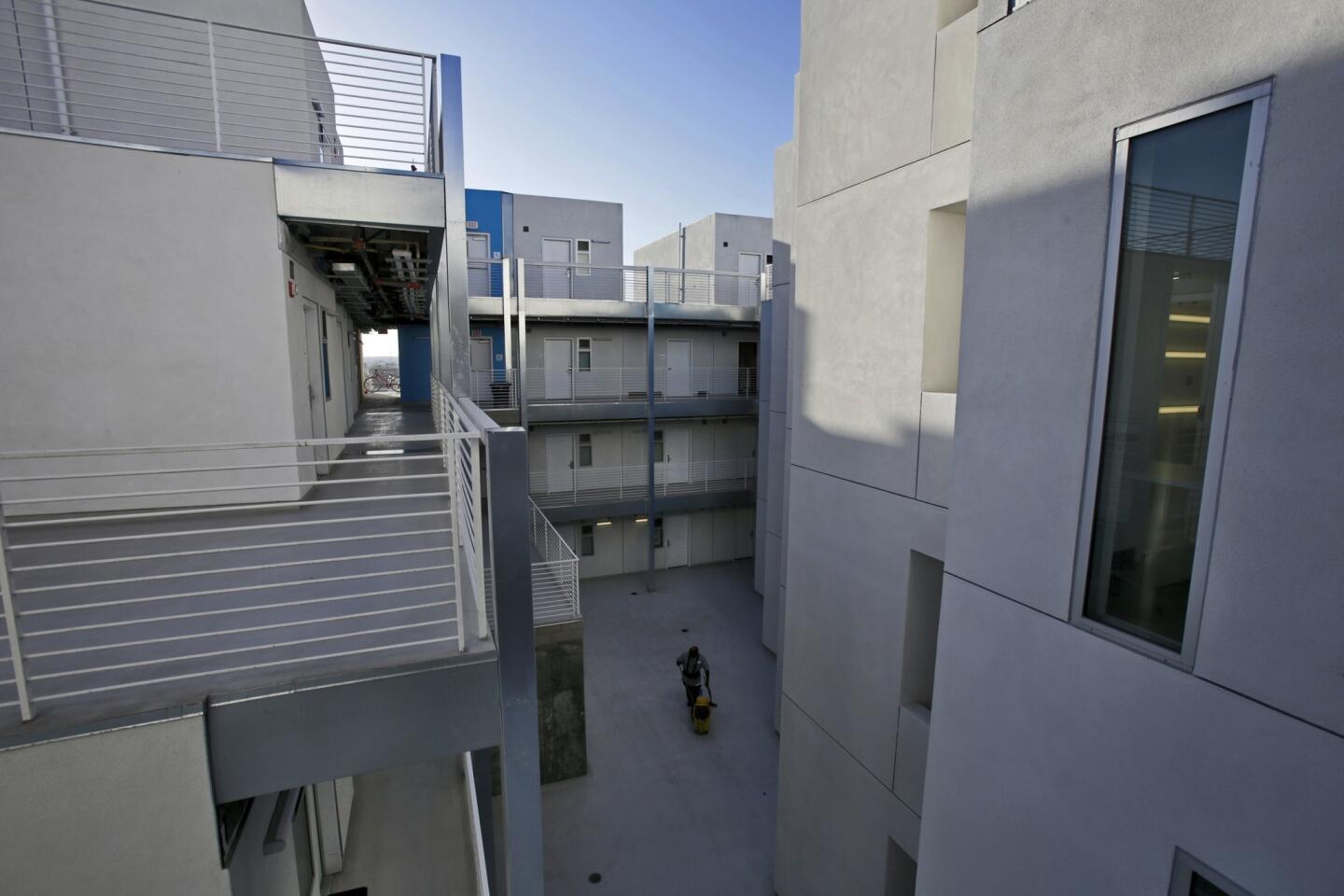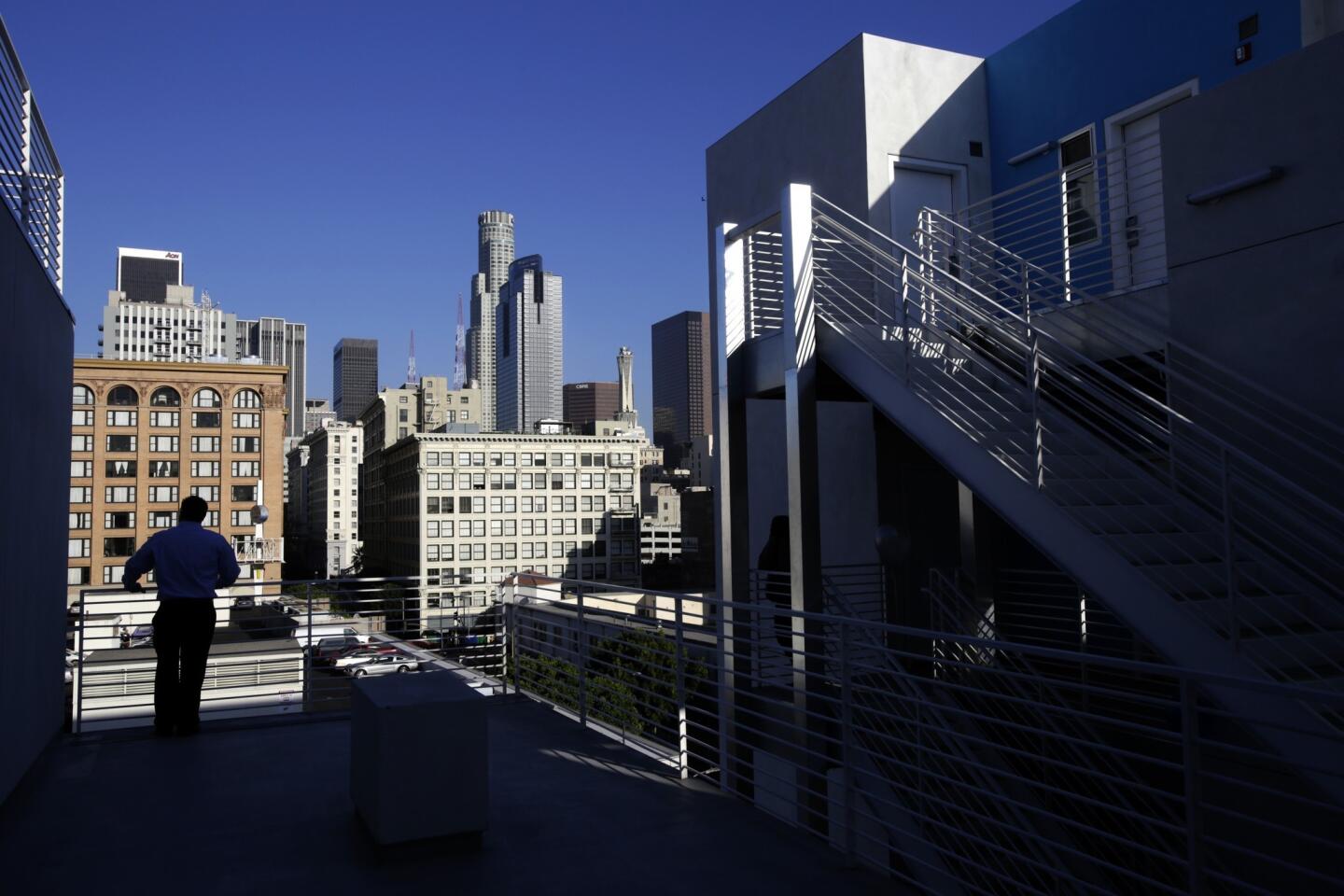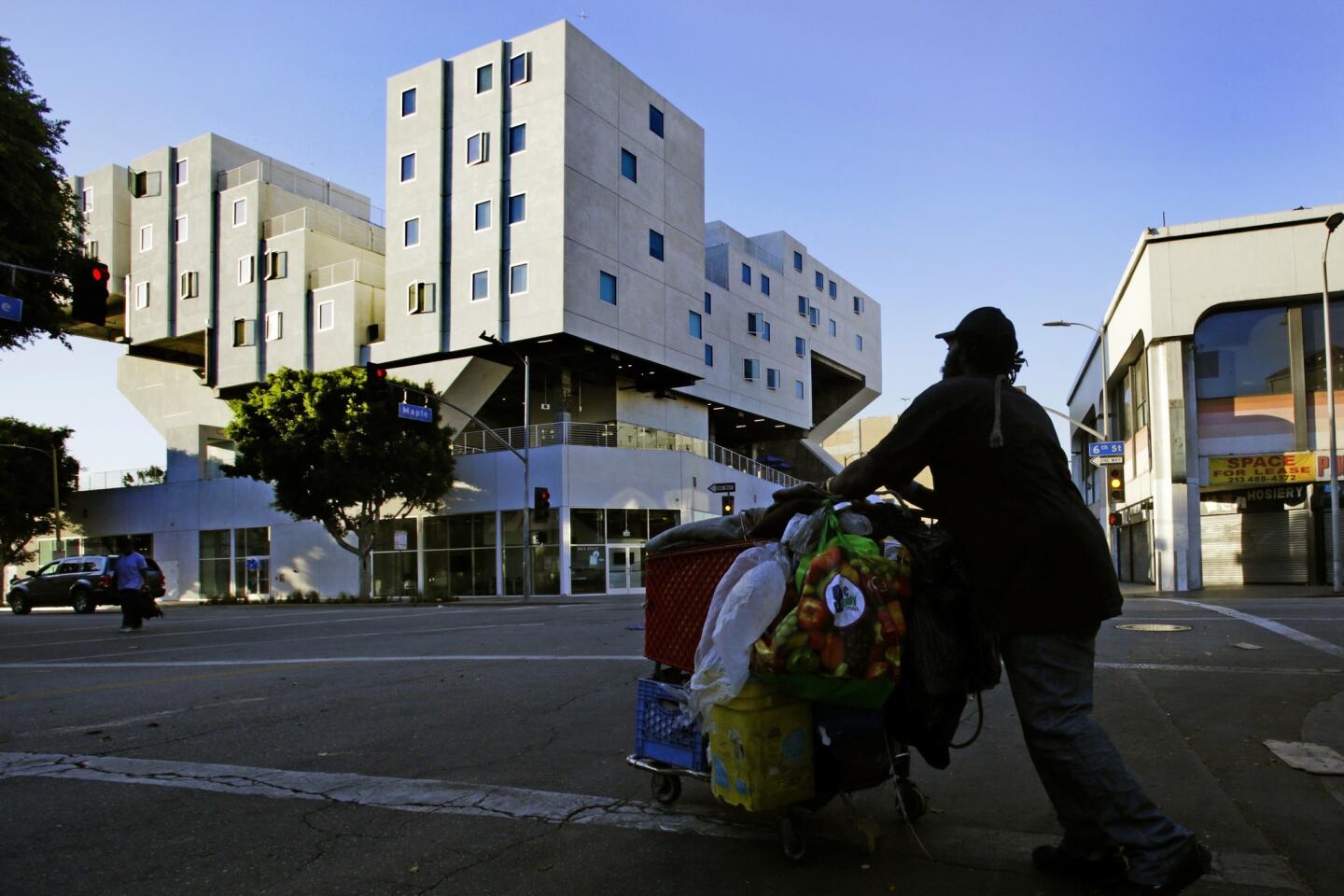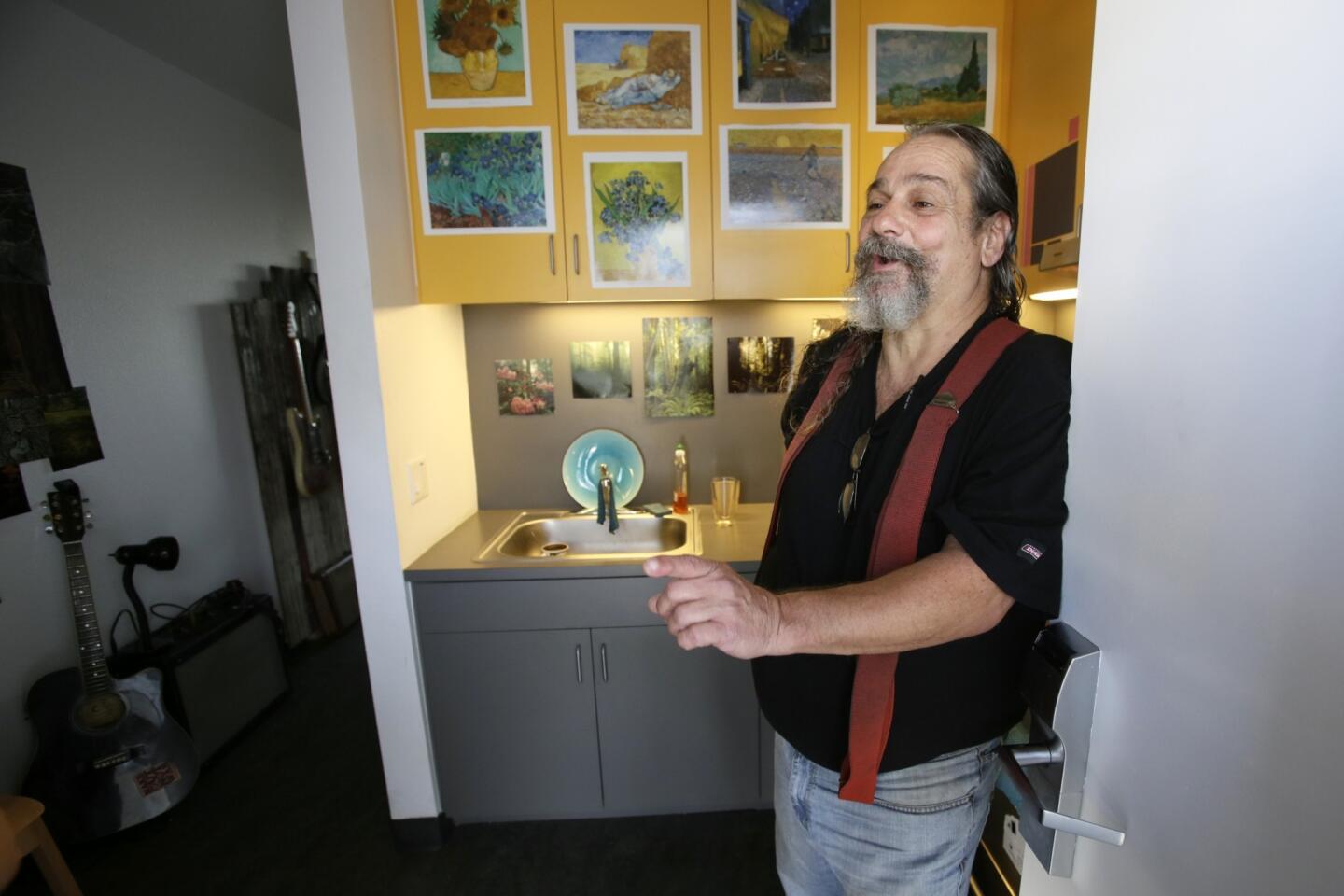Innovative apartment complex for homeless people opens on skid row
- Share via
An innovative housing complex for homeless people officially opened on skid row Wednesday.
The $40-million Star Apartments building, developed by Skid Row Housing Trust and designed by architect Michael Maltzan, has attracted international attention for its striking profile.
The 100-unit building, which began accepting tenants almost a year ago, is made out of prefabricated modules stacked like children’s building blocks at angles that jut out above the corner of Maple Avenue and 6th Street. Amenities include a community garden, running track, exercise and art rooms and a library. The official opening was delayed to let residents settle in.
Maltzan also designed the upscale One Santa Fe development, a $160-million complex that opened recently and stretches four blocks along the eastern edge of the downtown arts district.
Maltzan said that while the Star complex was tailored for chronically sick and mentally ill homeless people, his office took the same care with it as it did in designing One Santa Fe, where 438 units will rent for $1,680 to $4,000 a month.
“The community that lives here should have a similar environment to anybody that could afford something more expensive,” he said.
The ground floor of the Star complex is occupied by the county Department of Health Services’ Housing for Health division headquarters and a county medical clinic. The division moved from a downtown office tower to be closer to the epicenter of homelessness, officials said.
The $18-million Housing for Health program aims to house 10,000 of the county’s sickest, most vulnerable homeless people in the next 10 years.
Its offices were designed pro bono by the Gensler architecture firm.
The floors are polished concrete, the reception desk is clad in reclaimed wood and the amber-colored pendant lights were made by a Seattle design firm out of corrugated cardboard, Gensler’s Charrisse Johnston said.
The five exam rooms are lined with translucent acrylic panels in a bubble pattern that allows light in while guarding privacy. An open mezzanine level cloisters health workers for sensitive medical discussions without cutting them off from the rest of the team below, Housing for Health director Marc Trotz said.
Bill Fisher, 61, a former ironworker trade unionist, called the Star apartments “mind-boggling” and a welcome refuge after heart troubles and the death of his life partner landed him in the streets.
“If somebody had told me 10 years ago I’d lose everything and end up homeless, I’d have said you’re nuts,” said Fisher, who decorated his studio apartment with art projects, including antique sheet music, his guitar collection and an orchid suspended from a palm frond.
Trotz calls the office a “supportive housing lab” and hopes it will draw the people it serves and representatives of the agencies that serve them.
A sign behind the desk reads: “This office is dedicated to ending homelessness in Los Angeles.”
“We can end homelessness in L.A. -- there’s no question about it,” Trotz told the crowd at the building’s opening.
Twitter: @geholland
More to Read
Sign up for Essential California
The most important California stories and recommendations in your inbox every morning.
You may occasionally receive promotional content from the Los Angeles Times.
